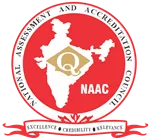- About Us
- Admission
- Academics
- Examination
- IQAC
- Research
- IIC
- Placements
- Student Support
- Anti - Ragging
- Citizenship Training
- Counselling
- Equal Opportunity Centre
- Mentorship
- Mid day Meal Scheme
- Scholarship
- Sexual Harassment (Prevention and Redressal)
- CQAC and SQAC
- Students Welfare
- Capability Enhancement and Development Schemes
- Assessing Learning Levels
- International Desk
- Student Grievance Redressal Committee SGRC
- St. Joseph's Boys Hostel - Apply
- Outreach
- Student Activities
- Infrastructure
- Sports
- Alumni Activities
What needs to be known about learners (their environment, background, community, and potential) to teach them well?
Cura personalis—personal care and concern for the individual—is a hallmark of Jesuit education, and requires that teachers become as conversant as possible with the context or life experience of the learner. Since human experience, always the starting point in a Jesuit education, never occurs in a vacuum, educators must know as much as possible about the actual context within which teaching and learning take place. Teachers need to understand the world of the learner, including the ways in which family, friends, peers, and the larger society impact that world and affect the learner for better or worse.
What is the best way to engage learners as whole persons in the teaching and learning process?
Teachers must create the conditions whereby learners gather and recollect the material of their own experience in order to distil what they understand already in terms of facts, feelings, values, insights and intuitions they bring to the subject matter at hand. Teachers later guide the learners in assimilating new information and further experience so that their knowledge will grow in completeness and truth.
What needs to be known about learners (their environment, background, community, and potential) to teach them well?
Teachers lay the foundations for learning how to learn by engaging students in skills and techniques of reflection. Here memory, understanding, imagination, and feelings are used to grasp the essential meaning and value of what is being studied, to discover its relationship to other facets of human knowledge and activity, and to appreciate its implications in the continuing search for truth.
How do we compel learners to move beyond knowledge to action?
Teachers provide opportunities that will challenge the imagination and exercise the will of the learners to choose the best possible course of action from what they have learned. What they do as a result under the teacher's direction, while it may not immediately transform the world into a global community of justice, peace and love, should at least be an educational step towards that goal even if it merely leads to new experiences, further reflections and consequent actions within the subject area under consideration.
How do we assess learners’ growth in mind, heart, and spirit?
Daily quizzes, weekly or monthly tests and semester examinations are familiar instruments to assess the degree of mastery of knowledge and skills achieved. Ignatian pedagogy, however, aims at evaluation which includes but goes beyond academic mastery to the learners’ well-rounded growth as persons for others. Observant teachers will perceive indications of growth or lack of growth in class discussions and students’ generosity in response to common needs much more frequently.


